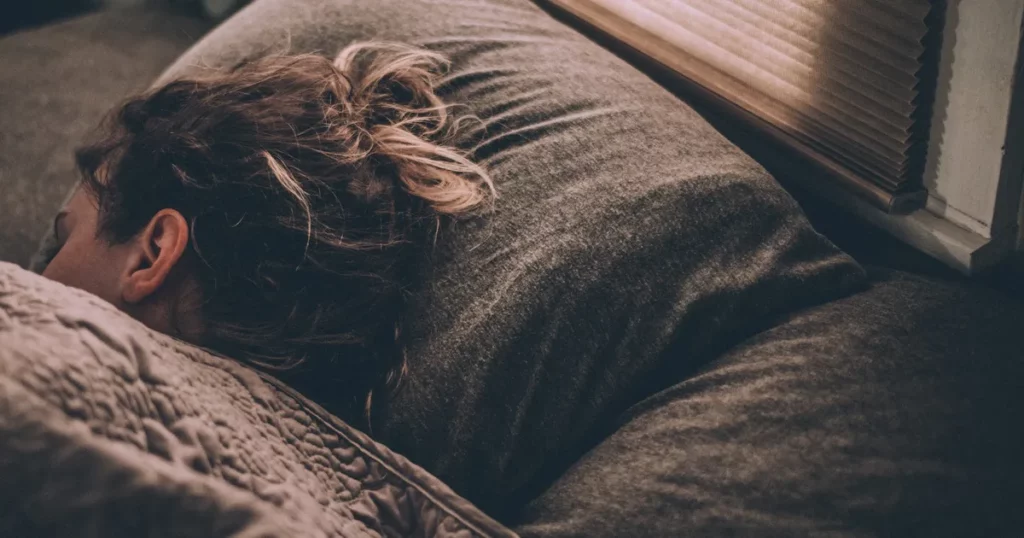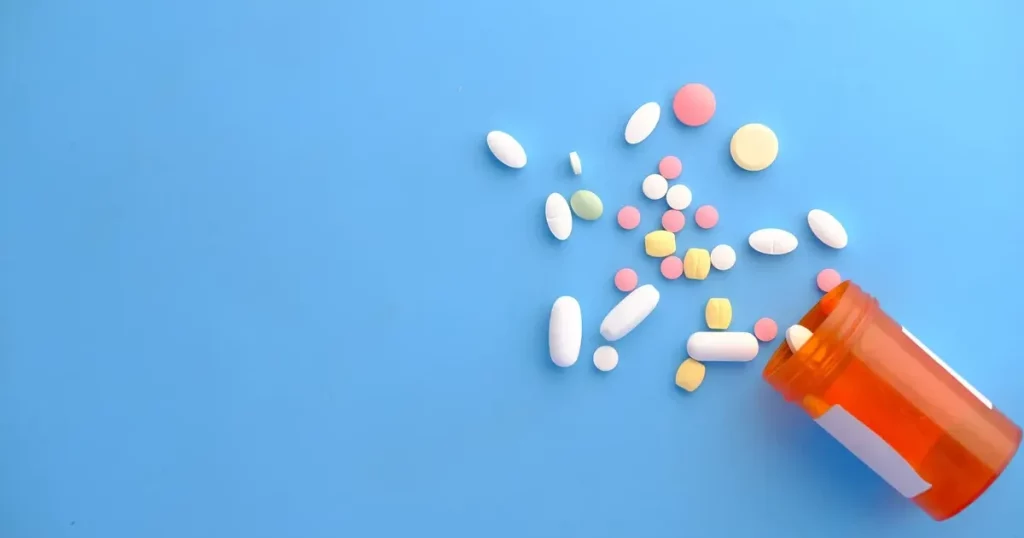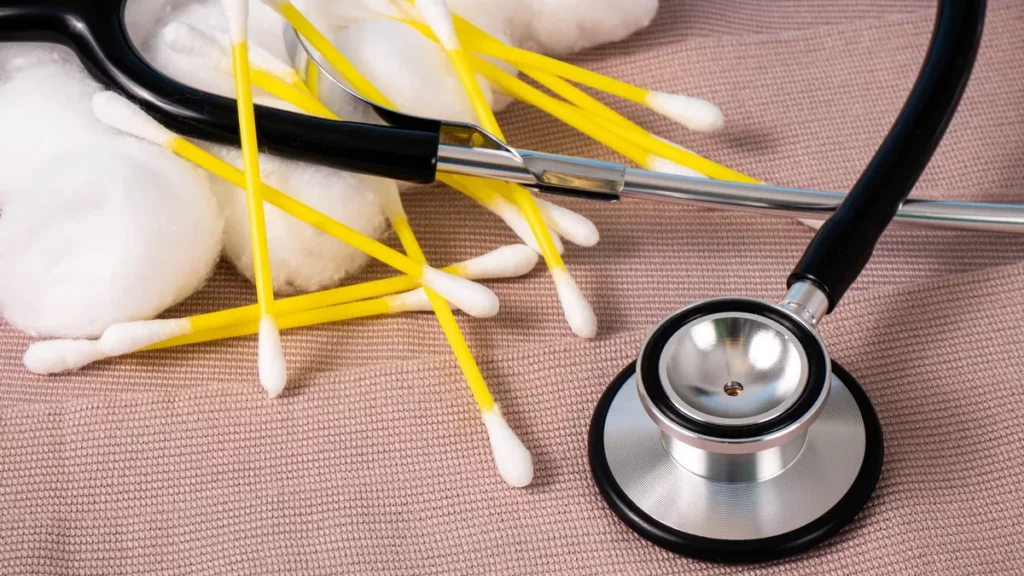Night sweats in women are quite common. Night sweats, characterized by excessive sweating during sleep, can lead to damp pajamas or bedding and result in disrupted sleep and discomfort. Although sweating is a natural process that helps regulate body temperature, excessive night sweats may indicate an underlying issue. This article delves into what causes night sweats in women, how to identify and treat it, and when to consult a medical professional.
Table of Contents
I. Common Causes of Night Sweats in Women
A. Hormonal Fluctuations as Causes of Night Sweats

Hormonal changes are one of the most common reasons for night sweats in women. Fluctuations in estrogen and progesterone levels can cause the body’s internal thermostat to become imbalanced, leading to excessive sweating at night. These changes often occur during menopause, perimenopause, and pregnancy. However, it is essential to consider other potential causes, as hormonal changes are not the only reason for night sweats.
Learn more about the connection between hormones and night sweats here.
B. Sleep Disorders and Night Sweats

Sleep disorders, such as sleep apnea and insomnia, can cause night sweats. Sleep apnea is characterized by interrupted breathing during sleep, which can lead to excessive sweating. Insomnia makes it difficult for a person to fall asleep or stay asleep, potentially resulting in increased body temperature and sweating. Proper diagnosis and treatment of these sleep disorders can help alleviate night sweats.
Learn more about sleep disorders and night sweats here.
C. Infections: Another Cause of Night Sweats in Women

Infections, such as tuberculosis, endocarditis, and osteomyelitis, can cause night sweats as the body tries to fight off the infection. Additionally, night sweats with no fever may still be present in women with certain viral or bacterial infections. It is crucial to consult a healthcare professional if you suspect an infection as the cause of your night sweats.
Learn more about infections and night sweats here.
D. Medications and Night Sweats

Some medications can cause night sweats as a side effect, including antidepressants (such as prozac and others), antipyretics, and hormone replacement therapy drugs. If you suspect that your medication may be causing night sweats, consult your healthcare provider to discuss alternatives or adjustments to your current treatment.
E. Lifestyle Factors Contributing to Night Sweats

Lifestyle factors, such as alcohol consumption, drug use, spicy foods, and caffeine intake, can lead to night sweats. Consuming these substances can cause the body to produce more sweat, leading to night sweats. Reducing intake or abstaining from these substances may help alleviate symptoms.
Read more about lifestyle and night sweats here.
F. Underlying Medical Conditions and Night Sweats

Night sweats can also be a symptom of underlying medical conditions, such as diabetes, thyroid disorders, or heart problems. If you experience persistent night sweats, it’s essential to consult a healthcare professional for proper diagnosis and treatment.
II. Night Sweats in Women: A Possible Symptom of Cancer
In some cases, night sweats can be a symptom of cancer, particularly lymphoma and breast cancer. If you experience unexplained, persistent night sweats accompanied by other symptoms, such as weight loss, fever, or fatigue, seek medical attention immediately.
III. Menopause and Night Sweats
A. Perimenopause and Night Sweats
Perimenopause is the transitional phase before menopause, during which hormonal fluctuations can cause night sweats. These hormonal changes can lead to an increase in body temperature and sweating, especially during sleep.
B. Postmenopause and Night Sweats
Even after menopause, some women continue to experience night sweats. This is often due to lower levels of estrogen, which can still affect the body’s internal thermostat.
C. Hormone Replacement Therapy and Night Sweats
Hormone replacement therapy (HRT) can help alleviate menopausal symptoms, including night sweats. However, in some cases, HRT may cause night sweats as a side effect. It’s crucial to discuss the potential benefits and risks of HRT with your healthcare provider before starting treatment.
IV. Pregnancy and Night Sweats

A. Hormonal Changes During Pregnancy
Pregnancy can cause night sweats since the body goes through a lot of hormonal hormonal changes. As the body prepares for childbirth, estrogen and progesterone levels fluctuate, which can cause an increase in body temperature and sweating.
B. Postpartum Night Sweats
Postpartum night sweats are common among new mothers as the body adjusts to hormone levels after giving birth. These night sweats are typically temporary and should subside as the body returns to its pre-pregnancy state.
V. Identifying and Managing Night Sweats
A. Symptoms and Signs of Night Sweats
Night sweats are characterized by excessive sweating during sleep. The severity can range from mild to drenching, and other symptoms may accompany night sweats, such as chills, fever, or fatigue.
B. Treating Night Sweats in Women
Treatment for night sweats depends on the underlying cause. If the cause is hormonal fluctuations, hormone therapy may be recommended. In cases where an underlying medical condition is responsible, addressing that condition is essential. In some instances, lifestyle changes or home remedies may help alleviate symptoms.
C. Home Remedies And Coping Strategies
Several home remedies and coping strategies can help manage night sweats:
- Keep your bedroom cool and well-ventilated.
- Use moisture-wicking bed sheets and sleepwear.
- Stay hydrated by drinking plenty of water.
- Limit alcohol, caffeine, and spicy food consumption.
- Practice relaxation techniques, such as deep breathing or meditation, to reduce stress.
D. Seek Professional Help
If you experience persistent night sweats or are concerned about the severity of your symptoms, consult a healthcare professional for evaluation and appropriate treatment.
VI. Frequently Asked Questions
When should I be concerned about night sweats in women?
Night sweats can be a normal response to hormonal changes or external factors. However, if night sweats persist, worsen, or are accompanied by other symptoms such as fever, weight loss, or fatigue, seek medical attention.
Why are night sweats a red flag?
Persistent night sweats can be a red flag for underlying medical conditions, such as infections, hormonal imbalances, or even cancer. It’s essential to address the cause of night sweats to ensure proper treatment.
Are night sweats related to heart problems in women?
Night sweats can be a symptom of heart problems, such as heart failure, in both men and women. If you have a history of heart issues or experience other symptoms, consult a healthcare professional.
Are night sweats a sign of hormonal imbalance in women?
Yes, night sweats can be a sign of hormonal imbalance, particularly during menopause, perimenopause, and pregnancy.
Can anxiety cause night sweats in women?
Anxiety can trigger the body’s stress response, leading to increased body temperature and sweating. Managing stress and anxiety may help reduce the occurrence of night sweats.
What can I do to minimize the impact of night sweats on my sleep?
To minimize the impact of night sweats on your sleep, ensure that your sleep environment is cool and well-ventilated, use moisture-wicking bedding, and practice relaxation techniques before bed.
How do I differentiate between night sweats due to menopause and other causes?
Menopausal night sweats are often accompanied by other menopausal symptoms, such as hot flashes or mood swings. If you’re unsure of the cause of your night sweats, consult a healthcare professional for proper evaluation and diagnosis.
Conclusion
Night sweats in women can be caused by various factors, including hormonal fluctuations, sleep disorders, infections, medications, and lifestyle factors. Understanding the underlying cause of night sweats is crucial for proper treatment and management. If you’re concerned about your night sweats, consult a healthcare professional for guidance and support.
Sources:
- Deecher, D. C., & Dorries, K. (2007). Understanding the pathophysiology of vasomotor symptoms (hot flushes and night sweats) that occur in perimenopause, menopause, and postmenopause life stages. Archives of Women’s Mental Health, 10(6), 247–257.https://pubmed.ncbi.nlm.nih.gov/18074100/
- Thurston RC, Luther JF, Wisniewski SR, Eng H, Wisner KL. Prospective evaluation of nighttime hot flashes during pregnancy and postpartum. Fertil Steril. 2013 Dec;100(6):1667-72. doi: 10.1016/j.fertnstert.2013.08.020. Epub 2013 Sep 12. PMID: 24035604; PMCID: PMC4167790.
